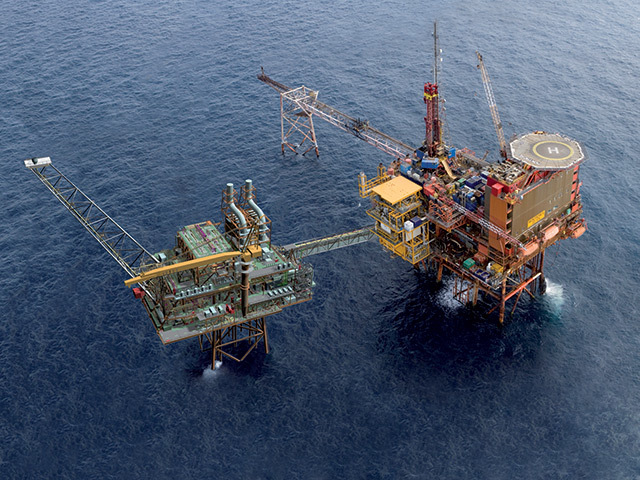
Sinopec said it will push ahead this year with a government-driven agenda to open up state-controlled industries, as China’s energy companies search for private capital.
Asia’s biggest refiner, officially known as China Petroleum & Chemical Corp., will sell as much as 30 percent of its oil retail business, in a sale analysts have predicted could raise more than $20 billion.
PetroChina and its parent China National Petroleum Corp, are considering opening up areas including pipelines, oil and gas exploration and refining to private capital.
“In 2014, the company expects to make significant advances in its development by fully embracing reform, leading to corporate transformation, organizational vigor and stronger corporate values,” Sinopec Chairman Fu Chengyu said yesterday in a statement.
The Beijing-based company yesterday reported 2013 net income rose 3.4 percent to 66.1 billion yuan ($10.6 billion), missing the 67.8 billion yuan mean of 12 analyst estimates compiled by Bloomberg.
“Sinopec is the most tied to the Chinese economy of the major oil companies and the economy might be grinding a bit slower this year,” said Simon Powell, head of oil and gas research as CLSA Ltd. “All the talk of reform is great, restructuring the marketing business is great, but the bottom line is ultimately driven by the domestic economy.”
The refiner said oil and natural gas production rose 3.5 percent to 442.8 million barrels of oil equivalent last year. Gas output increased 10 percent on 2012 levels. Sinopec forecast production of 363.8 million barrels of crude oil in 2014 and 706.2 billion cubic feet of natural gas.
China is pushing the most aggressive reforms in more than a decade as President Xi Jinping works to increase market forces in the economy. The nation set a 7.5 percent target for growth in 2014, matching last year’s goal, Premier Li Keqiang told the annual legislature meeting in Beijing this month. China’s economy actually grew 7.7 percent in 2013.
Sinopec approved last month the plan to seek private investors for its oil retail unit, which operates the nation’s largest network of more than 30,000 fuel stations.
“We will continue to promote transformation and upgrades with a focus on improving development quality and efficiency,” Fu said.
The company set a capital expenditure target of 161.6 billion yuan for this year, 4.2 percent lower than a year ago. Sinopec will focus spending mainly on exploration and production, Fu said.
“We will strengthen our exploration effort in shale gas resources in Fuling to achieve significant development of China’s shale gas industry,” he said.
China Petrochemical Corp., the state-owned parent of Sinopec, has said it will build shale gas capacity at its Fuling site to 5 billion cubic meters a year by 2015, suggesting a national target of 6.5 billion cubic meters will be met or surpassed.
PetroChina, the country’s largest oil producer, is also cutting expenditure. It said last week its spending target for 2014 was 7.1 percent lower than the previous year. The company reported net income rose 12 percent to 129.6 billion yuan last year, beating the 125.7 billion yuan mean of 13 analyst estimates compiled by Bloomberg.
Sinopec dropped 0.2 percent to HK$6.64 as of 10:39 a.m. in Hong Kong, compared with a 1.1 percent gain in the city’s benchmark Hang Seng Index. Sinopec has declined 4 percent in the past year, compared with the Hang Seng’s 2.6 percent fall.
Rising refining costs, weaker income from oil and gas production and still lofty capital spending may lower Sinopec’s return ratio, while raising its net debt level this year, Hong Kong-based Barclays’s analysts including Somshankar Sinha and Ying Lou said in an e-mailed report today. Barclays cut Sinopec’s target price by 3 percent to HK$6.80.
“With proven reserve cover in China now below nine years and the company committed to its coal-to-chemical joint ventures and still raising refining capacity, Sinopec may have limited flexibility on spends unlike PetroChina,” the analysts said.
“We continue to prefer PetroChina, which has higher earnings growth, a stronger balance sheet and cheaper valuations,” according to the note. PetroChina gained 3.7 percent to HK$8.15.
Recommended for you
